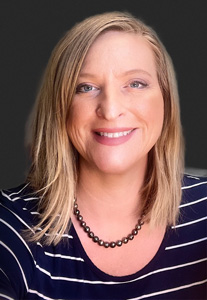I am a sandwich generation mother and daughter; I can attest to our unique challenges. I have the added challenge of a disability, or as I like to refer to it, a unique neurotype. Despite growing up thinking I was a neurotypical person who was just unlikeable or “weird,” I have always been extroverted and affectionate. I love people, and meeting and connecting with new individuals brings me joy. However, over the years, I’ve realized that many people do not resonate with or reject me for reasons I did not initially comprehend. Accepting my diagnosis was originally a struggle. Although my brother was diagnosed with AuDHD (Autism and ADHD) at a young age, I considered myself different from him – the good girl who behaved. Yet, as time passed, I began questioning if I was autistic.

Michelle Markman
Low Support Needs, Not No Support Needs
Shortly after marrying my husband, I faced a challenging period while adjusting to my new role as a wife. I revisited my diagnostic paperwork from college, prompting me to delve into online research. Like many neurodivergent adults diagnosed later in life, I contacted fellow neurodivergent individuals online. I encountered difficulties with certain autism groups, not realizing every Facebook group has a private owner. Feeling like I did not fit in with either neurotypicals or autistics, I wondered where I truly belonged. I wasn’t entirely sure.
Coaching With a Twist
During this time, I sought assistance from a coach. Although it proved transformative and enabled significant personal growth, I sometimes found the Socratic questioning overwhelming and stressful. Having relied on external answers, unlocking them within was challenging for specific topics, necessitating additional help.
I combine coaching and mentoring to aid my clients who are genuinely stuck on a topic. I offer personal anecdotes and words of affirmation to help them surmount barriers and achieve sought-after transformations. This unique approach stems from my identity as a neurodivergent-affirming and neurodivergent-identifying coach.
Being a First-Time Parent
Becoming a parent during a pandemic presented challenges. I grappled with conflicted feelings about seeking help or support. While everyone wants time with the baby, the genuine need is for assistance with other tasks – cooking, cleaning, and chores – allowing for quality bonding. Occasionally, having someone else care for the baby so you can shower or rest is a tremendous gift.
One regret from my child’s infancy is not involving my family more. Despite my parents’ significant help, I didn’t include my brother, his wife, or my cousins much, which I regret as they’ve moved away. I wonder if involving them more would have kept them closer.
Assisting Aging Parents
Presently, I am navigating challenges as my parents age. One parent is battling cancer, and the other has an autoimmune disorder. Both are in their mid-seventies and still firm but certainly struggling more as the years pass. I have relied on them for my childcare, but with the recent diagnoses, I must find childcare – a stressful endeavor. I am trying to find a caregiver who understands my unique child’s needs and won’t punish them for sensory challenges if they act out. I don’t want someone who will punish them for their sensory challenges or if overstimulation is difficult.
Motherhood’s Isolation
Building a supportive network is paramount for mothers. Every mother needs a village, not just neurodistinct mothers but particularly for those with extra support needs. Connect with others in your neighborhood and community, and attend online or in-person support groups, business networking events, and parenting groups. These can provide a safe place to give and receive support, and to celebrate successes.
Being an Autistic Mom and Entrepreneur
Thriving as an autistic mom and entrepreneur demands discipline, resilience, and consistency. It necessitates pushing and sometimes trampling comfort zones, and embracing the unexpected to share your unique story, inspiring others. While no single voice can reshape perceptions of autism, a collective community effort can advocate for diversity and inclusion.
Changing Perceptions
In sharing my story, I aspire to reshape how people perceive autism and neurodiversity. I am a successful entrepreneur, manager, and dedicated parent and daughter, and I am autistic.
Balancing isn’t a straightforward concept. While dads and men may have more inherent support systems, mothers constantly waver between missing out on their children’s lives and business opportunities. Even with a fantastic support network, juggling remains challenging.
Every mom who’s wondered if they’re a good mother is a good mom. Release the “mom” guilt and honor yourself as a mother and an individual. You deserve passions, hobbies, community, and self-care.
Michelle Markman is a Neurodivergent Relationship-Based Coach and is CEO of ND Coach, Inc. For more information, visit www.michellemarkman.com, email michelle@michellemarkman.com or call (949)791-7883.



